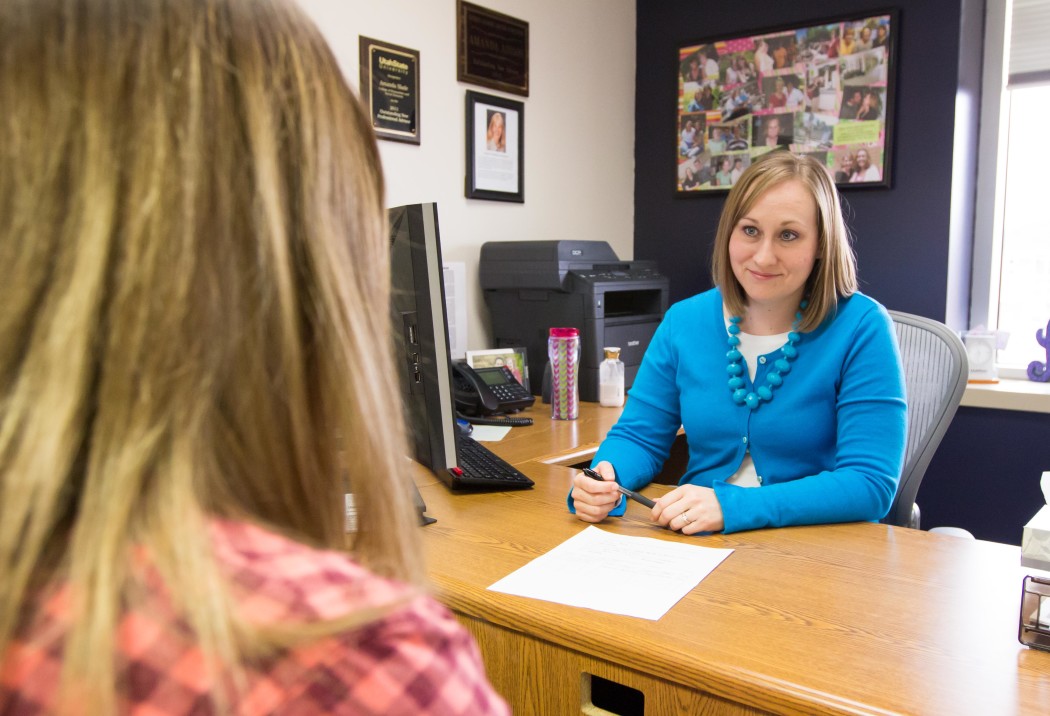New survey allows students to evaluate advisers
Starting this month academic advisers will receive feedback from students, who can evaluate their advisers with new follow-up assessments.
After advising appointments, students receive an email with a link to the assessment, which has several dozen questions. Once a month, the data is compiled and college deans disseminate it to the advisers.
“There really hasn’t been a structured mechanism for them to give feedback,” said vice provost Janet Anderson. “I would hope that students feel empowered to be able to share about their experiences with their adviser. It gives students a voice in the process.”
This initiative has spanned over three years and two USUSA officers.
Matt Ditto was the USUSA executive vice president in 2014-15, but he started as education senator in 2013-14. Now graduated, he said students wanted to be able to evaluate their advisers.
“I heard a lot of complaints from MyVoice, as well as within my own college,” Ditto said.
Adviser evaluations were something administrators wanted as well.
“I’ve always wanted to do that because I did that in my college, but really the impetus that pushed the process was USUSA — students asked,” Anderson said.
Once the initiative got to administrators in July, it started to come together. Part of the reason it took almost three years from start to finish was because Ditto and administrators wanted to “go about it the right way.”
“We didn’t want to put down the advisers — we wanted them to improve and get students some accountability on their side,” Ditto said.
Previously, each college had their own academic advising. Now, since July, this all falls under the umbrella of university advising. Each advising unit still remains separate with a core advising mission, since each college is unique, but university advising provides professional development opportunities for advisers.
The advisers themselves, however, have some concerns.
“Nobody really likes being critiqued,” said Thomas Buttars, executive vice president for USUSA. Buttars sat on the advising working group committee and was a proponent of getting the evaluations. “This is just really new for a lot of advisers. I think there are a couple colleges where potential raises are based on assessments.”
Advisers sometimes have to deliver hard messages to students — e.g. “you can’t graduate this semester,” “you don’t qualify for this scholarship,” “you have to get your GPA up if you want to keep your scholarship.” Anderson thinks this could be where the concern comes from, but she said data compilers will know that these instances can result in outliers.
“Many advisers have never been evaluated before by students. It just makes people uncomfortable. It makes them feel insecure because it could impact their job or their raise,” Anderson said. “They don’t know what students are going to say. … Students tell you what they think.”
Students are frank, Anderson said, but they can be sincere in the compliments.
While Buttars has been the highly involved in the process of getting the evaluations, he credits Matt Ditto with the idea.
“He was the one that made the initiative and got it to the starting line with administrators, and I was able to hit the ground running because of the effort that he put in,” Buttars said. “Sometimes it’s hard to get these initiatives running because you don’t know what channels you have to go through to get it started.”
Anderson thinks most students will be complimentary of their advisers, and once the advisers realize that they will not be as concerned.
“These people are underpaid, overworked, and they need some rewards. It’s a thankless job, and they need a way to be recognized,” Anderson said.
— brennakelly818@gmail.com
@bckelly8

